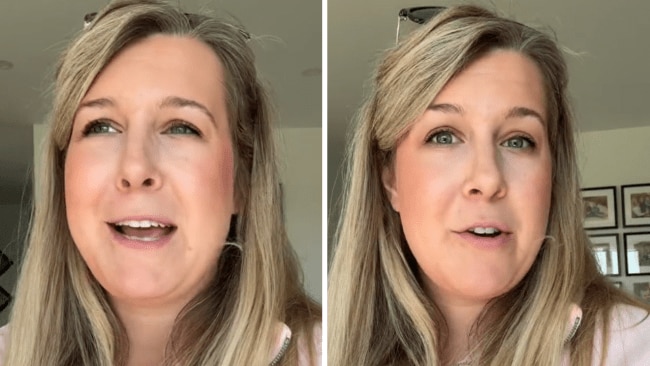'This parenting journey can be incredibly isolating'
"I’m never ashamed of my child. I’m incredibly proud of him and the amazing little human he is."
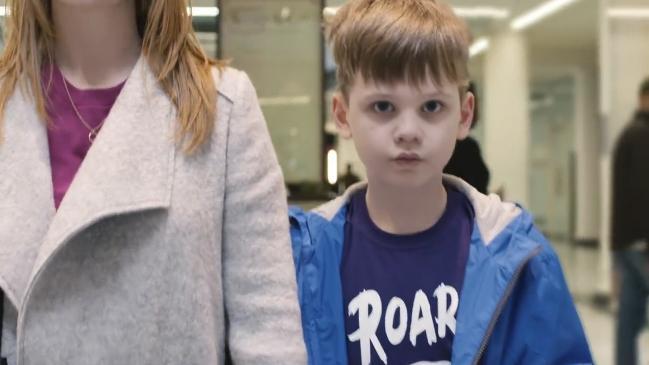
Family Life
Don't miss out on the headlines from Family Life. Followed categories will be added to My News.
Leah Williams and her family live an idyllic life on the Central Coast.
The influencer, who boasts more than 80,000 followers on Instagram, moved north from Sydney with her husband and three kids earlier this year, and shares a snapshot of her life with her followers.
She’s also a special-needs parent.
Want to join the family? Sign up to our Kidspot newsletter for more stories like this.
Leah’s five-year-old son August lives with level-two autism and pathological demand avoidance, a condition characterised by an overwhelming need to avoid any type of demand.
The mum-of-three told Kidspot she first suspected August might be neurodivergent during her pregnancy with her third child.
“He started having these very long periods of being dysregulated, more than what you’d call a normal toddler tantrum,” she said.
“My eldest had tantrums, so it wasn’t a new concept to us, but it felt a lot more frequent and they were much longer.
“Then every day tasks started to become really difficult. Things like getting dressed, eating breakfast, cleaning his teeth, brushing his hair, were just so hard to do.
“We started noticing dangerous behaviours like jumping off things and running into things along with repetitive behaviours and everything needing to be exactly so.”
RELATED: 'We knew things would be tough, but we didn't realise how lucky we were'
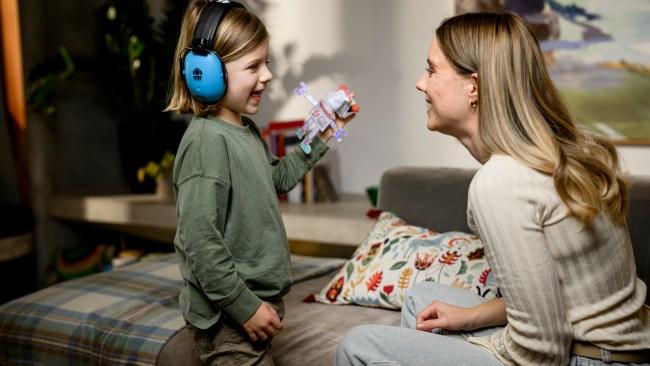
"It does kind of shatter your world"
Leah decided to visit her GP about August’s behaviour, not necessarily with the end-goal of getting a diagnosis at the start, but simply because she “needed help and guidance”.
“When we first started this journey, we never suspected that we would end up having a child diagnosed with autism,” Leah said.
“We just went to our GP saying we didn’t know what to do with this behaviour, because we were really struggling with it.
“We just needed some help. It took a few trips to the GP before we got a referral to a child psychologist, so we went on the waitlist for that, which of course was months long.”
Leah’s GP eventually gave the child psychologist a little nudge, and August was accepted for play-based sessions.
Introducing our new podcast: Mum Club! Listen and subscribe wherever you get your podcasts so you never miss an episode.
The family then went through a private paediatrician to get August’s diagnosis.
“When you first get a diagnosis, it does kind of shatter your world because it’s not something you ever imagined your child having,” Leah said.
“I had my own incorrect, preconceived ideas of what autism was and what it looked like, and I wasn’t aware that autism presents differently in different people.
“There’s definitely a grieving process that every parent goes through when you first get that diagnosis, but now we just look at it as a way to help us understand August better.”
RELATED: ‘My daughter went from a nonverbal autism diagnosis to publishing kid’s books’
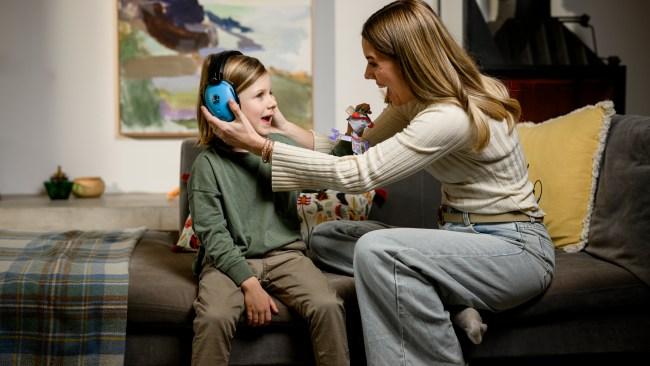
"Simple tasks can take hours"
Since August’s diagnosis, Leah and her husband have had to learn the best ways to parent their middle child, and that can look different on any given day.
“Everything we do is to help support August in knowing what’s coming next and what to expect each day,” she said.
“Even simple tasks like trying to get him ready to go to school can take hours for us. We’re in a good place at the moment with our routines and strategies to support him, but that can easily change.
“Most days involve some type of therapy, whether it’s at a clinic or preschool. I’m his main carer, so I’ll take him to most of his sessions which can often be a full day for us.”
RELATED: Six signs of autism in girls that doctors often miss
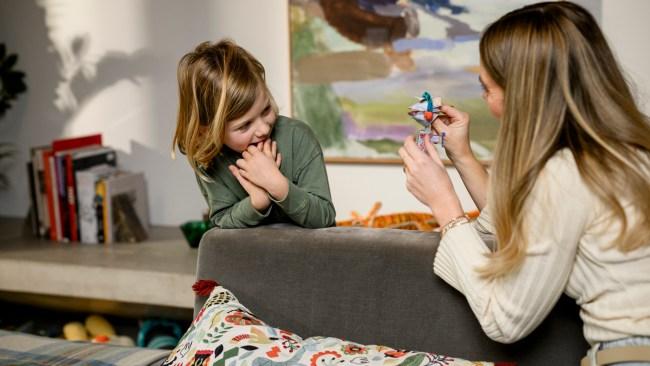
"Your daily life looks so different to most other people"
Leah told Kidspot the increased mental load is one of the hardest aspects of having a child who lives with autism.
“Having to balance the needs of everyone as a family unit with August’s needs is really hard,” she said.
“It often feels like my other two kids are the ones who have to adjust more than they probably should because August has things he needs a certain way.
“It can also feel incredibly isolating going on this journey, because you’re dealing with a completely different thing than your average family deals with.
“There are aspects of your daily life that look so different to most other people, and because of that you’re often limited in terms of social interactions because of your child’s needs.
“For a long time we struggled to even go out together as a family because August just refused to leave the house, so we had to always split our time. My husband would go out with the girls, and I would stay at home with August.
“One of the scarier things we dealt with was absconding. I’ve chased August down roads with my youngest strapped in a baby carrier, and I’ve gotten some intense looks from people.”
RELATED: They dismissed my baby as a late walker... I even researched signs of autism
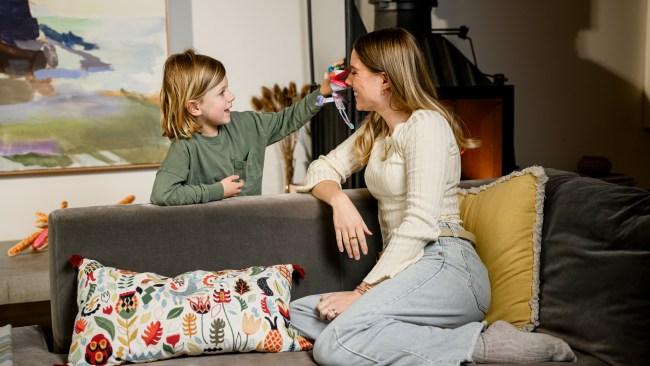
"I'm incredibly proud of him"
Leah said she’d also struggled with parental guilt and shame, but has since come to realise that was more about society’s views of neurodivergency rather than anything she was doing wrong.
“It’s more shame of how society may have perceived him, or perceived my parenting, but I’m never ashamed of my child. I’m incredibly proud of him and the amazing little human he is,” she said.
“I just have to remind myself that a lot of parenting talk isn’t really for my child, they don’t know my child and the way he regulates himself.
“He’ll often just zone out and play on his iPad for two hours, but at the end of that time we find that he’s happier and calmer and willing to turn it off and come back to us.
“One of the big parenting phrases I use is ‘does this really matter?’. I say to myself ‘should we really let him have three lollies in his pocket for daycare’, but I realise that’s what he needs to transition from the house to the car, and then to daycare, and it doesn’t really matter if he has those lollies at the end of the day.”
Leah and August have partnered with Print Pals, a free initiative from HP that allows families to print and personalise their own paper puppets that can help kids express their feelings in a different way.
“We started using the Print Pals at home, and it really helped facilitate the things we do in therapy and gives him a really simple way to talk about how he’s feeling,” Leah said.
“It’s a really great tool that all parents can utilise in some way.”
More Coverage
Originally published as 'This parenting journey can be incredibly isolating'




